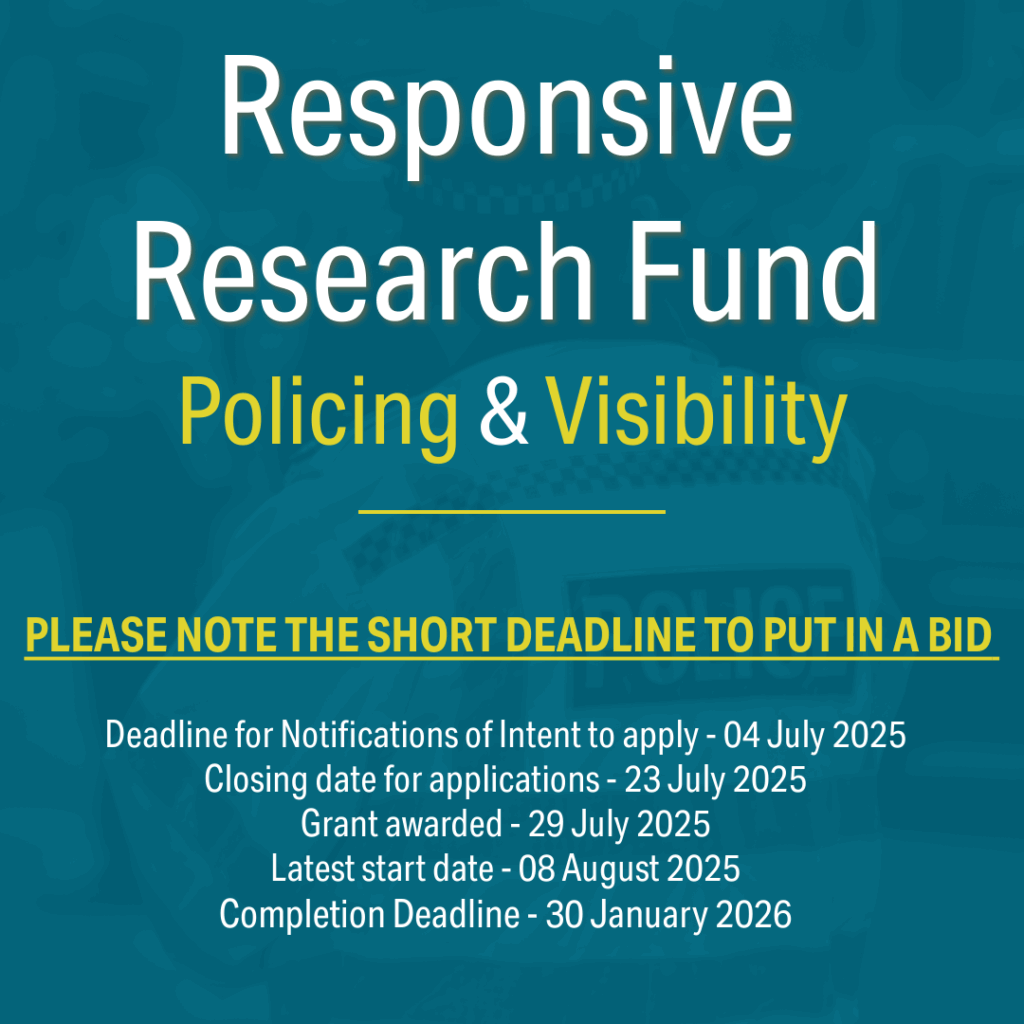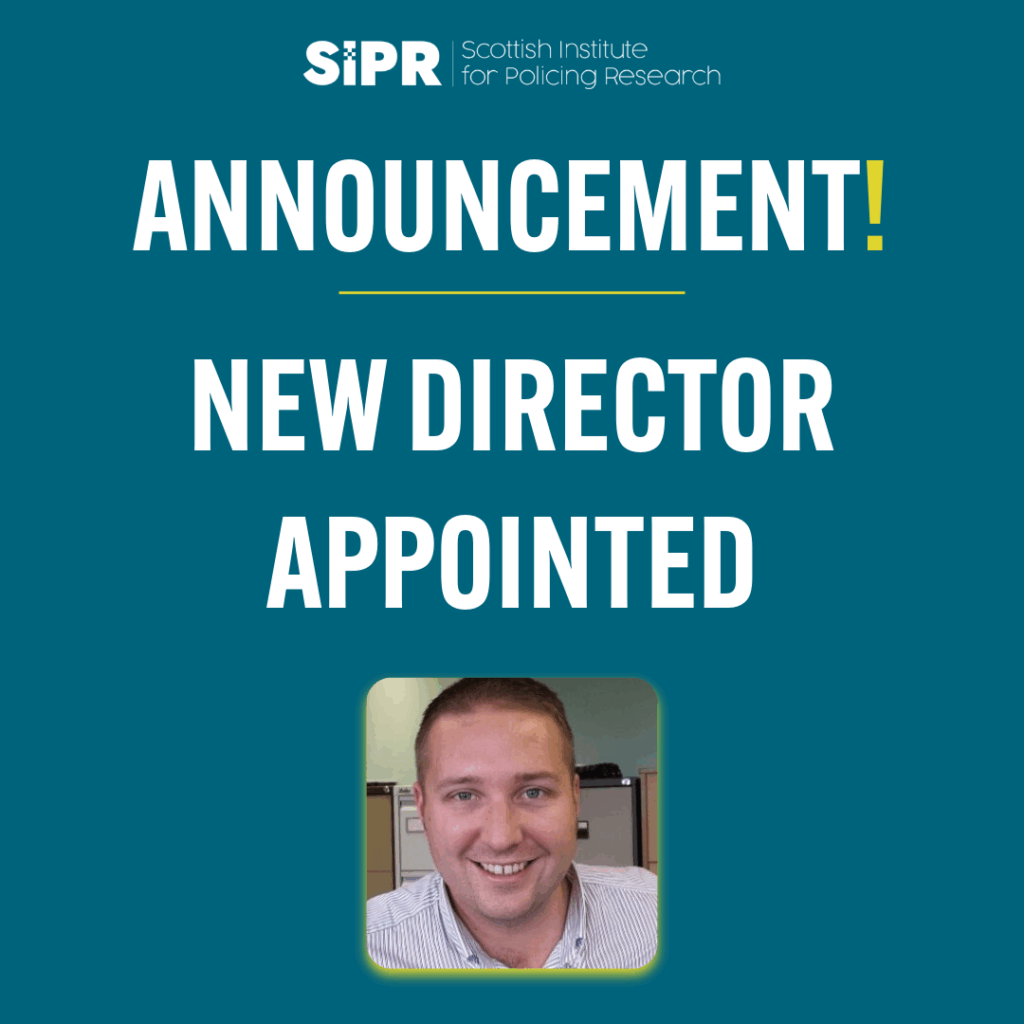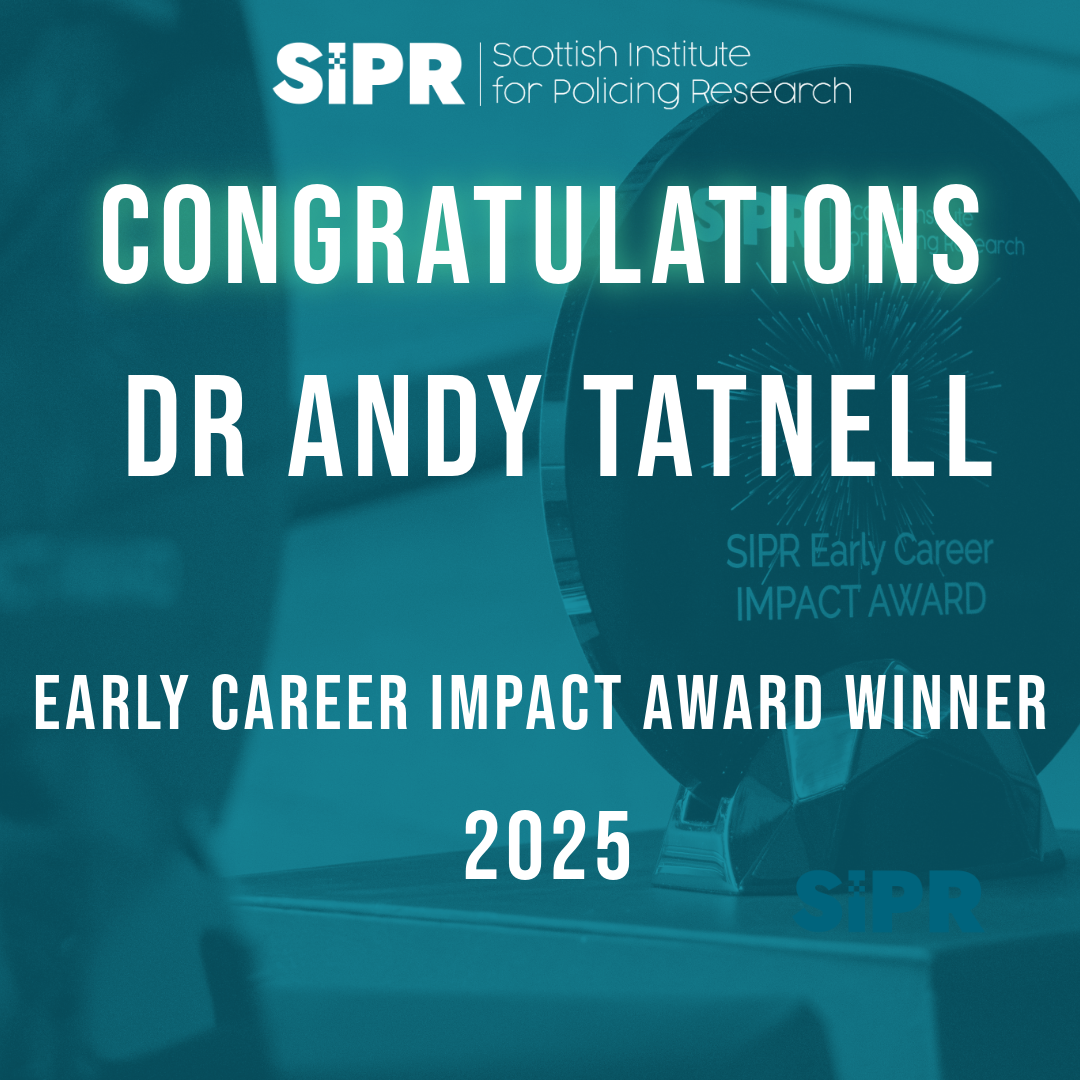RESEARCH GRANTS TO EXPLORE PUBLIC CONFIDENCE IN POLICING WITHIN SELDOM HEARD COMMUNITIES
The Scottish Institute for Policing Research (SIPR), Police Scotland, and the Scottish Police Authority (SPA), have joined together to provide £62,000 to fund projects which will support the police to improve engagement with seldom heard communities.
The term ‘seldom-heard’ refers to communities which are historically under-represented and may be less likely to engage with police for a variety reasons (including race, religion, sexuality, disability, and age, as well as communities isolated through geography or economic disadvantage).
Dr Megan O’Neill, SIPR Associate Director and Lead for the Police-Community Relations network stated:
“The focus of these grants is to understand seldom heard communities and emphasise the role of police, researchers, and policy makers in building effective and meaningful connections. Many of these communities feel they are not being listened to, and we have an important role to play in support research which will ensure their voices are heard; their needs are met; and their perspectives are understood.”
Following a successful public event in May 2021, which saw almost 200 attendees come together to explore public confidence in Police Scotland for seldom heard communities, SIPR, Police Scotland and the SPA launched the ‘Seldom Heard Community Grants’ and invited all interested parties to apply for funding for projects which would support Police Scotland to further enhance its support to these communities.
A total of fifteen applications were received from UK-based researchers and were subject to a rigorous assessment via an award panel which consisted of senior Scottish academics, senior police officers and staff, and senior representatives from the Scottish Police Authority. The field was highly competitive; however, it was agreed that five applications selected stood out for the relevance of their focus; innovative approaches; and robust methodologies.
Assistant Chief Constable John Hawkins, who led this work for Police Scotland stated:
“It is really positive to have received so many applications of such good quality and of varying subject matters to assist Police Scotland in improving engagement with seldom heard communities. This is an extremely important area of work for Police Scotland, and I look forward to receiving the outcomes from the research.”
Amanda Coulthard, Head of Strategy & Performance at Scottish Police Authority, stated:
“We were delighted with the range of applications received for this fund, which focuses on improving engagement with groups who may be seldom heard. The SPA commitment to policing in the public interest means it is critical we work to understand any possible barriers to engagement from seldom heard groups, and seek to evolve practice”.
Our congratulations go to:
Dr John Mendel (University of Dundee) who will lead the project “Inquiring together: Collaborative Research with BAME communities and serving officers”. Dr Mendel will work with Dundee City and Aberdeenshire Councils, as well as the Scottish Refugee Council to support police officers to engage, as co-inquirers (utilising action research), with people who are seldom heard: refugees, migrants and those from BAME communities in Dundee, Glasgow and Aberdeenshire. This will allow a set of policing guidelines to be developed by the community of police officers and the BAME and migrants working together.
Dr Andrew Williams (St Andrew’s University) as Principal Investigator for the research project “To be seen and heard: developing photovoice as a method for the police to engage with young people in underserved communities”. Working with the Scottish Violence Reduction Unit, the Wallacetown Strategic Community Partnership, and the University of Exeter Relational Health Group, this project aims to support the police in adopting creative methods to engage young people in an area of significant economic disadvantage and understand the places and people that matter to them.
Dr Julie Berg (University of Glasgow) who will head up the project “Accounting for Complexities: an Intersectional Approach to Enhancing Police Practitioner Accountability, Legitimacy & Sustainable Reform” which aims to develop an intersectional good practice tool kit through which Police Scotland can better engage with seldom heard communities in order to underpin sustainable reform and improved accountability mechanisms.
Professor Jim Moir (Abertay University) who will lead the project “Hearing seldom heard groups: Policing with empathy in conversation with LGBT and young people from disadvantaged backgrounds”. Delivered in collaboration with the Articulate Cultural Trust (a charity which supports young people to enable creativity) and Dundee City Council, this research aims to not only explore the experiences of young people from disadvantaged backgrounds where there may also be intersectional aspects at play (e.g., (LGBT-Q identifications) in encounters with the police, but also to examine the extent to which empathy and understanding of different seldom heard voices is apparent in Police Scotland.
Dr Nicole Vidal (Queen Margaret University) as Principal Investigator for “Refugee and asylum-seeker experiences, trust and confidence with Police Scotland” which will collaborate with third sector organisations that provide psychological support to refugees and asylum seekers with the aim of building an understanding of the quantity and quality of refugees’ social networks and their role in influencing engagement with the police.
Dr Liz Aston, Director of the Scottish Institute for Policing Research which will administer these grants, stated:
“The projects funded through the Seldom Heard Community scheme will explore some of the most pressing issues facing police-community relationships today. While the research will explore Scottish experiences and examples, they represent challenges being faced globally within policing. There is enormous potential for these projects to impact current policing policies and practices, and SIPR is looking forward to working with all five teams to support this wherever possible.”



